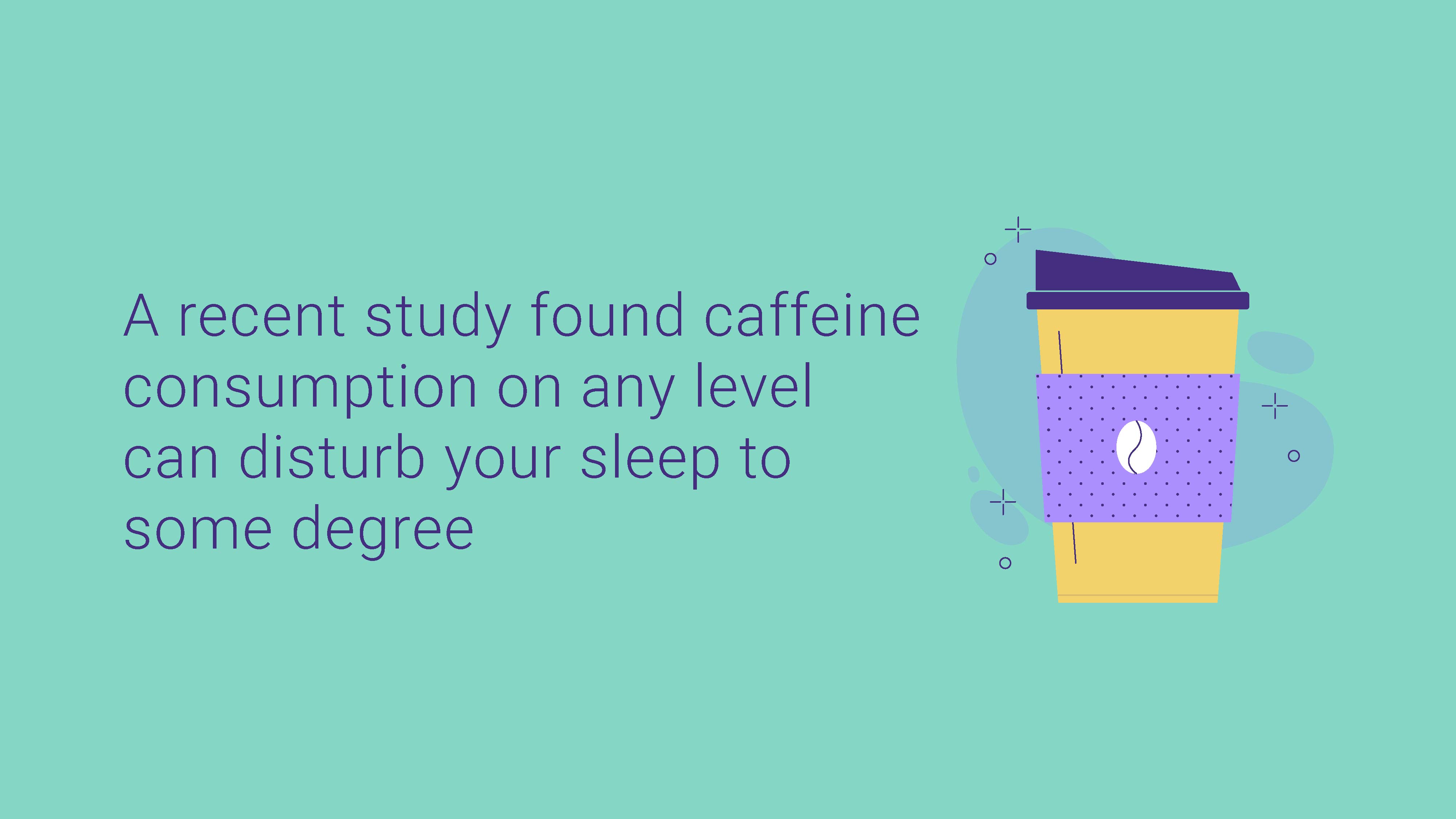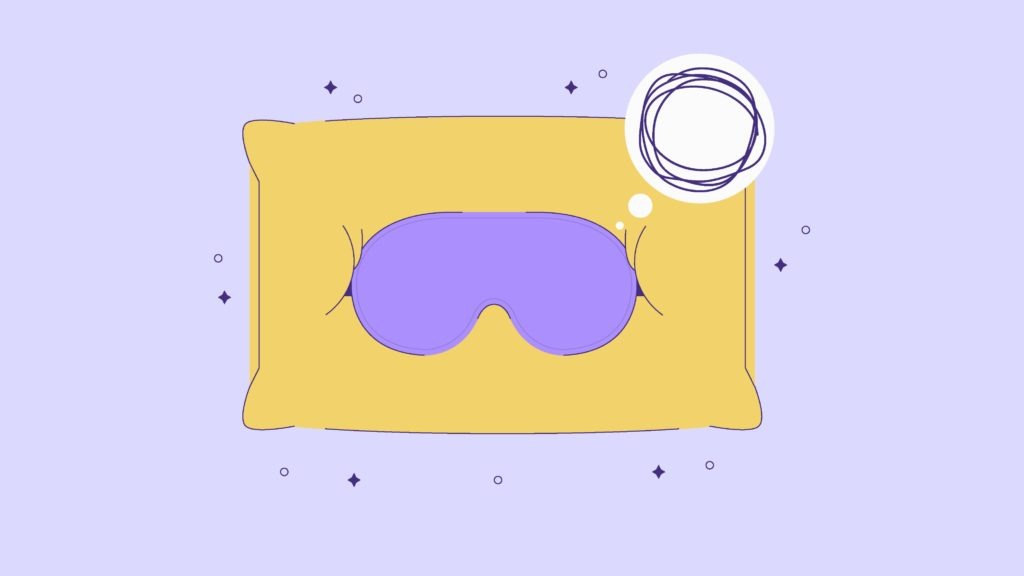Sleeplessness affects most of us at some point in our lives. We’ve all had nights where we just can’t fall asleep or stay asleep long enough to feel rested. However, if you regularly find your sleep disturbed in this way, you may have a sleep problem known as insomnia.
Insomnia can be tricky to manage, but we’re here with information about its common causes, and tips for developing healthy habits to help you get the sleep you need.
What Is Insomnia?
Insomnia is a sleep disorder characterized by difficulty falling or staying asleep. It’s a common problem. In fact, around 25% of Americans are reported to experience insomnia each year. That’s a lot of sleepless nights.
The main symptom of insomnia is not being able to fall or stay asleep. But you may also find you:
- Wake up too early
- Feel tired in the morning
- Experience low energy or fatigue
- Feel irritable during the day
- Struggle to concentrate
Your sleeplessness may be temporary. Some people only experience insomnia between one night and a few weeks, known as acute insomnia. If you have trouble sleeping for more than three nights a week over three months, you could have chronic insomnia.
Many of the treatments for insomnia are lifestyle-related, like creating the right sleep environment. However, some people with insomnia are referred to cognitive behavioral therapy or a session with a sleep specialist.
Sleep Disorders
For some people, difficulty sleeping can be the result of another sleep disorder. It’s also not uncommon for insomnia to be a symptom of, or exist alongside, another condition.
The main characteristics of sleep disorders include finding it hard to fall asleep, not feeling well-rested, and excessive tiredness during the day.
Sleep Apnea
Sleep apnea is one of the most common sleep disorders. With sleep apnea, you stop breathing several times throughout the night, caused by a blockage of your throat. These interruptions can affect your sleep quality and cause you to wake up during the night. Common symptoms include excessive daytime sleepiness, loud snoring, and headaches upon waking.
One in five adults are estimated to be affected by sleep apnea, although most people don’t realize it until someone else points it out.
Narcolepsy
Narcolepsy is one of the most well known sleep disorders. It can cause people to experience “sleep attacks” where they suddenly feel tired and fall asleep without warning. This can happen even in intense environments, like at a busy theme park or festival.
While most of us have heard of narcolepsy, it’s relatively rare with just 1 in 20,000 people believed to be affected. It can occur on its own or with cataplexy, a similar condition which causes episodes of fainting brought on by emotional reactions. Narcolepsy with cataplexy is linked to insufficient levels of a brain chemical called hypocretin, which helps regulate sleep. There’s no known cause for narcolepsy without cataplexy.
Restless Legs Syndrome (RLS)
This sleep disorder is characterized by the intense need to move your limbs, usually your legs. Those with RLS describe the sensations in their legs as “creepy crawly” or like a “deep bone itch,” creating an almost irresistible urge to move. It’s most likely to occur while you’re at rest, which can make relaxing on the couch or falling asleep in bed rather difficult.
The exact cause of restless legs syndrome is not known. It’s been associated with some chronic disorders, such as kidney disease and diabetes, as well as pregnancy and certain medications. Those who are nutrient deficient are also prone to RLS. Some experts believe RLS is genetic, too.
Parasomnias
This category of sleep disorders covers a range of unusual activities and behaviors which happen during sleep. The most well known is sleepwalking, but the list also includes sleep talking, nightmares, and bruxism (also known as teeth grinding).
Parasomnias can be caused by a lack of sleep, poor quality sleep, or illness. They can also be a side effect of some types of medication.
If you struggle to fall or stay asleep and it affects your daily life, talk to your doctor about your chances of having a sleep disorder.
Why Can’t I Sleep?
We all experience insomnia for different reasons. For some people, sleeplessness is linked to an existing medical condition. For others, it’s influenced by habits and lifestyle choices. Here are some of the most common reasons why you may experience insomnia.
Medical Conditions
It’s common for insomnia to be caused by an existing or new medical condition. There are a range of illnesses and conditions that can impact your sleep, including mental health conditions like anxiety and depression. Physical conditions like restless legs syndrome and overactive thyroid can also affect sleep. Other sleep disorders like sleep apnea may make it harder to sleep, too.
Whether your insomnia is a new symptom or not, speak with your doctor if you believe it may be linked to a health condition. They’re equipped to offer advice and suggest ways to manage your symptoms.
Caffeine
Many of us bank on a cup of coffee to help us get through a busy day. While a daily coffee or soda isn’t going to wreak havoc on our sleeping patterns, they certainly have an impact.
As a general rule of thumb, you should consume less than 400 mg of caffeine per day— this equates to approximately 4 cups of coffee or 10 cans of soda. Meaning, unless you’re chugging caffeinated beverages all day, you should be able to consume caffeine normally without it posing a serious risk to your health.
If you struggle to get sound sleep, however, you should limit this caffeine intake to about half, so no more than 200 mg per day, and cut all caffeine consumption at least six hours before bed. A recent study found caffeine consumption on any level can disturb your sleep to some degree, so if you have chronic insomnia, you may want to kick the coffee habit altogether.
If you drink a lot of tea, coffee, or other beverages with caffeine, try a caffeine-free version, instead.

Your Bedroom
Another common cause of insomnia is environmental factors; this can mean anything from noise to room temperature.
It’s hard for anyone to sleep with a distracting noise in the background, but even more so if you already deal with sleeplessness. Cars, neighbors, and construction can all become a nuisance when it’s time to sleep. To help relieve some of this, use earplugs for sleep.
Temperature and lighting also play a part in your night’s rest. Set your thermostat anywhere between 60-67 degrees Fahrenheit, as temperatures below 54 and above 75 can hinder sleep. If your room is too hot or cold, it’ll be difficult to reach Stage 3 sleep.
Stage 3 is the first stage of deep sleep, and the most restorative. During Stage 3, your body recovers, cells repair, new information is processed, and your blood sugar levels are balanced. Missing out on deep sleep can easily leave you feeling sleep-deprived.
Your space should also be dimly lit or near dark— as light can be just as distracting as noise. If the morning sun comes peeking through your windows, invest in blackout curtains so you’re not waking up at the crack of dawn.
Your Mattress
Your bed itself also influences how you sleep. How many pillows you use, the quality of your mattress, and the type of bedding you use can make or break your quality of rest.
To create a positive environment for sleep, make your bedroom as calming as possible. Invest in the best mattress for your sleep needs, cozy (or cooling, whatever you prefer!) bedding, and comfortable pillows. Avoid bright colors, bold prints, and distracting decorations, too. A comfortable and supportive surface may help your insomnia.
Blue Light
It’s difficult to avoid the temptation to scroll through your phone before bed. The trouble is, the blue light from our devices could have an impact on how well we sleep.
Recent research suggests blue light can affect our sleep. The results of experiments at the University of Toronto suggest blue light suppresses melatonin, a hormone that helps control our sleep cycles. This means the blue light from our TVs, computers, tablets, and mobile phones can disrupt our body’s circadian rhythm.
An easy way to reduce the impact of blue light is to limit your screen time. Avoid looking at bright screens for an hour or two before bed. Instead, try ending your daily routine with a book or some light relaxation. You can also download apps to filter the blue/green wavelength.
How to Prepare Your Body for Sleep
While some causes of insomnia are easier to tackle than others, we can often introduce better sleep habits, or sleep hygiene.
Sometimes a small change in routine can help you enjoy a more restful night. Here are a few ways you can prepare your body for slumber.
Enjoy a Lighter Evening Meal
Heavy or fatty foods can take longer to digest, so it’s best to enjoy a light evening meal. Try healthy swaps like whole wheat pasta or brown rice. For meat-based meals, try chicken or turkey, which are leaner than red meat.
Certain foods can also trigger heartburn or indigestion, which makes it difficult to get comfortable enough to sleep. These include fatty foods like cheese, carbonated drinks, and spicy foods.
Incorporating good foods for sleep into your dinnertime diet can induce drowsiness earlier in the evening and help you get better rest.
Gentle Stretches or Relaxation Techniques
If you find yourself awake in the night and unable to sleep, it can be tempting to stay in bed. Instead, leave your bed and find a quiet, calm space for relaxing activities.
The goal is to create a sense of calm and relaxation so your body will feel ready to sleep. Try gentle stretching or relaxation techniques until you feel sleepy.
You could also try a technique known as progressive muscle relaxation. This is where you tense and then relax specific muscles in your body, like your shoulders. It’s been shown to reduce tension, stress levels, and anxiety, and help to improve sleep.
Create an Evening Routine
We all know how beneficial a bedtime routine can be for children, but we don’t often create one for ourselves. The structure and comfort of an evening routine can signal the end of the day and help prepare your body for sleep.
After dinner, reserve some time for calm activities you enjoy. This might include reading, journaling, or other creative hobbies. Make time for a warm shower or bath, which can help you feel sleepy. Build your routine and sleep schedule around your lifestyle, trying to keep it calm and focused on rest.
More Ways to Prepare for Sleep
Self-care isn’t just a buzzword. Taking care of our physical and mental wellbeing can encourage positive change in other areas of our life too, like sleep. A strong evening routine and good sleep hygiene go a long way towards creating the right environment for sleep. With positive lifestyle changes and advice from professionals, you should be sleeping more soundly in no time.
This article is for informational purposes and should not replace advice from your doctor or other medical professional.

The Conversation (0)
Start a discussion, our content team tries our best to respond to comments. However replies should not be a substitute for medical advice from your doctor.*